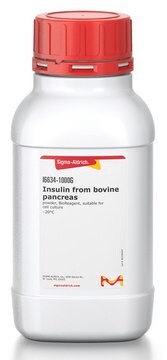I1411
ITX3
≥98% (HPLC)
Synonym(s):
2-[(2,5-Dimethyl-1-phenyl-1H-pyrrol-3-yl)methylene]-thiazolo[3,2-a]benzimidazol-3(2H)-one
About This Item
Recommended Products
Quality Level
assay
≥98% (HPLC)
form
powder
solubility
DMSO: ≥4 mg/mL
storage temp.
room temp
SMILES string
Cc1cc(\C=C2\Sc3nc4ccccc4n3C2=O)c(C)n1-c5ccccc5
InChI
1S/C22H17N3OS/c1-14-12-16(15(2)24(14)17-8-4-3-5-9-17)13-20-21(26)25-19-11-7-6-10-18(19)23-22(25)27-20/h3-13H,1-2H3/b20-13+
InChI key
SJMYMKPBODEZSH-DEDYPNTBSA-N
Biochem/physiol Actions
Features and Benefits
Storage Class
11 - Combustible Solids
wgk_germany
WGK 3
flash_point_f
Not applicable
flash_point_c
Not applicable
Certificates of Analysis (COA)
Search for Certificates of Analysis (COA) by entering the products Lot/Batch Number. Lot and Batch Numbers can be found on a product’s label following the words ‘Lot’ or ‘Batch’.
Already Own This Product?
Find documentation for the products that you have recently purchased in the Document Library.
Related Content
Cyclic nucleotides, including cyclic AMP (cAMP), cyclic GMP (cGMP) and cyclic ADP-ribose, have been extensively studied as second messengers of intracellular events initiated by activation of GPCRs. cAMP modifies cell function in all eukaryotic cells, principally through the activation of cAMP-dependent protein kinase (PKA), but also through cAMP-gated ion channels and guanine nucleotide exchange factors directly activated by cAMP.
Our team of scientists has experience in all areas of research including Life Science, Material Science, Chemical Synthesis, Chromatography, Analytical and many others.
Contact Technical Service




